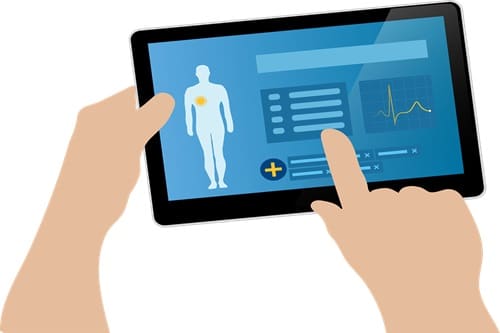Transforming Chronic Disease Surveillance with EHR Data

Chronic diseases, like diabetes, heart disease, and cancer, are a growing public health concern, impacting millions and straining healthcare systems across the US. Effective surveillance is crucial for early detection, intervention, and improved health outcomes.
However, traditional surveillance methods, often reliant on surveys and self-reported data, struggle to keep pace with the evolving demands of the healthcare landscape. As such, leveraging electronic health records (EHR) may be key to combating rising chronic disease rates effectively.
Below, we explore the potential of EHR data, its challenges, and how SSG LLC’s public health software can bridge the gap.
The Role of EHR Data in Modern Public Health
Most healthcare providers in the country now utilize EHRs, capturing a wealth of data about diagnoses, medications, lab results, and other valuable medical information. This comprehensive view enables a more accurate understanding of individuals’ health statuses, aiding the diagnosis and management of chronic diseases and potential health risks.
EHR Data: A Catalyst for Chronic Disease Surveillance
EHR data possesses several advantages that make it uniquely valuable for chronic disease surveillance, including:
- Real-time insights: Unlike surveys with inherent delays, EHR data provides up-to-date insights into disease prevalence, trends, and risk factors. Access to these real-time insights could transform disease surveillance systems and public health strategies.
- Clinical accuracy: EHR data is based on objective clinical observations and diagnoses, reducing the potential for bias and inaccuracy inherent in self-reported information.
In addition, EHR data tends to delve deeper, offering insights into specific disease subtypes, risk factors, and treatment patterns.
Overcoming Challenges in EHR Data Utilization
Despite its potential, utilizing EHR data for public health initiatives is not without its set of challenges. Chief among these are the following:
- Data sharing barriers: Legal, privacy, and security concerns often restrict data sharing between healthcare providers and public health agencies.
- Data standardization: Lack of uniform data formats across different EHR systems can hinder seamless data sharing, integration, and analysis.
For instance, during the COVID-19 pandemic, public health agencies struggled to collect and report immunization data due to lack of access to a centralized database. A comprehensive public health data exchange in an IIS platform would have addressed many of these issues.
Ultimately, unlocking the potential of EHR requires robust HIE solutions that facilitate the seamless and secure data exchange between policymakers, healthcare providers, and public health agencies.
SSG Innovations in EHR Data and Public Health
SSG’s solutions have facilitated surveillance programs for diseases like STIs, TB, and vaccine-preventable illnesses. Here are some of the ways our award-winning platform, Casetivity, addresses key challenges in unlocking the promise of EHR data for chronic disease surveillance:
- Secure and compliant data access: Our solutions prioritize data security and adhere to all relevant privacy regulations, building trust between public health agencies and healthcare providers.
- Standardized data integration: Our platforms are HL7 compliant, ensuring smooth data exchange from diverse EHR systems and creating semantic interoperability in public health surveillance.
- Advanced analytics and reporting: Our solutions feature robust tools for comprehensive disease surveillance and reporting, providing actionable insights for public health initiatives.
SSG LLC is at the forefront of harnessing EHR data. Contact us today to learn how our public health software can advance your public health agendas.
Future Directions: EHR Data and Health Surveillance
As technology advances and data sharing becomes more streamlined, we can expect to see:
- Enhanced real-time surveillance: Continuous, near real-time monitoring of disease trends will become the norm, enabling even more proactive public health interventions.
- Personalized public health: Tailoring interventions and resources to individual needs and risk profiles based on detailed EHR data is the ideal scenario.
By providing interoperable solutions that bridge gaps between various health information systems, SSG facilitates a more connected and informed approach to public health. Contact us today to learn how we can help modernize your public health initiatives.